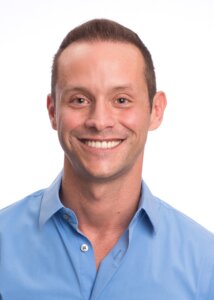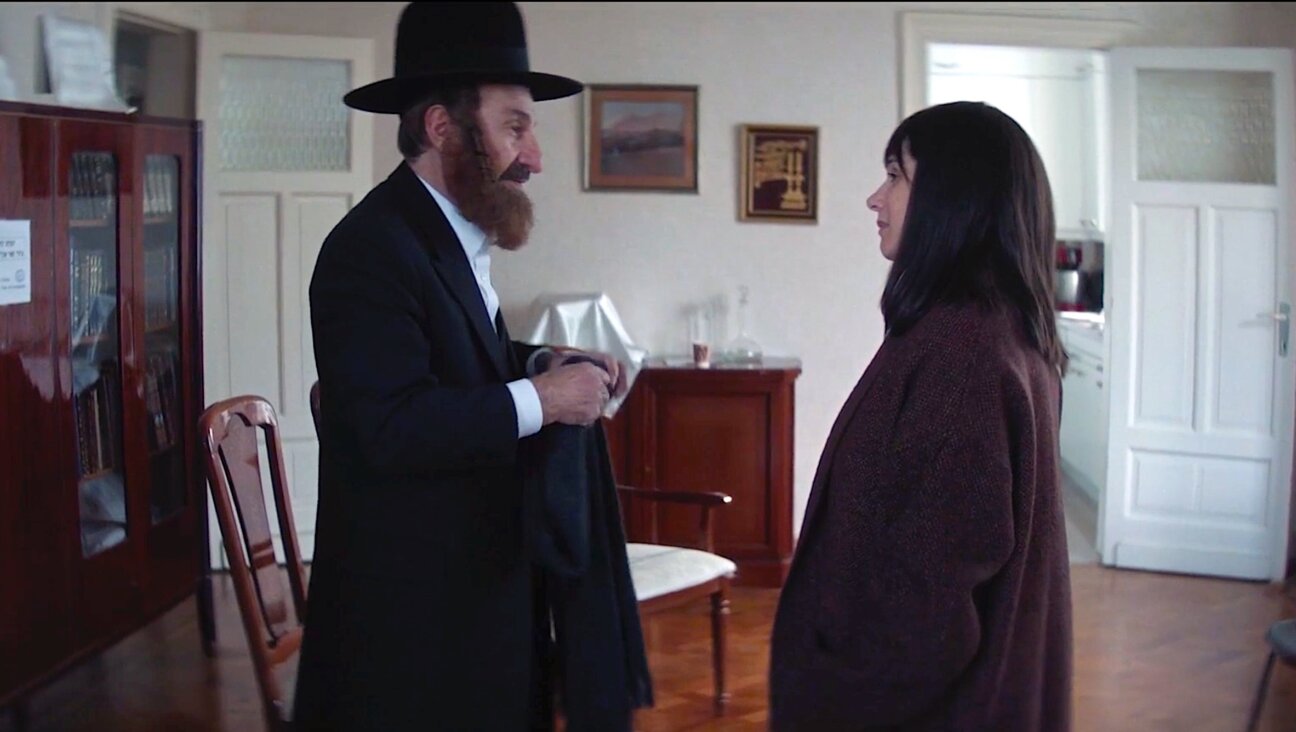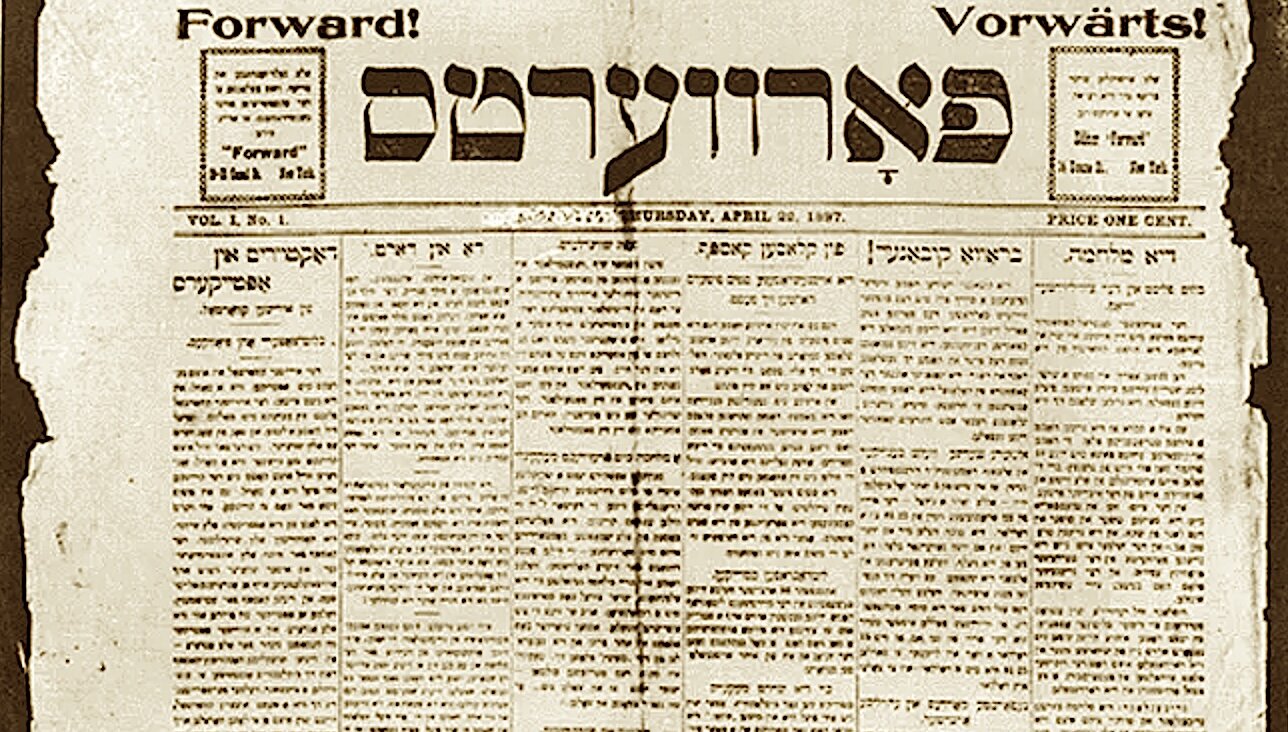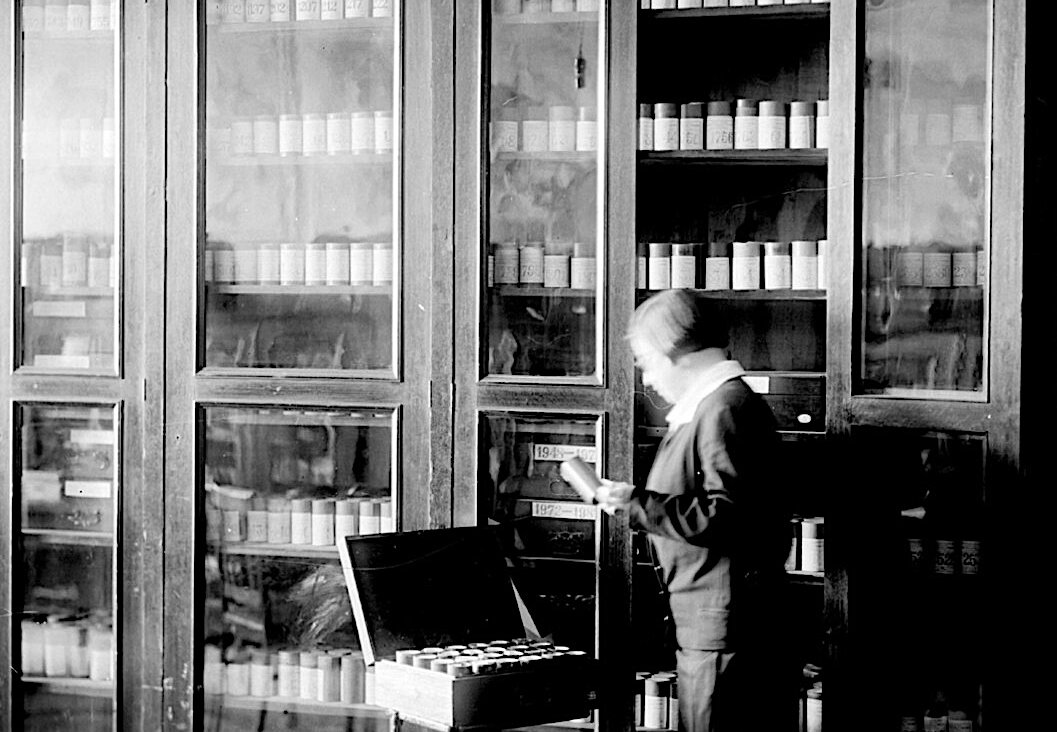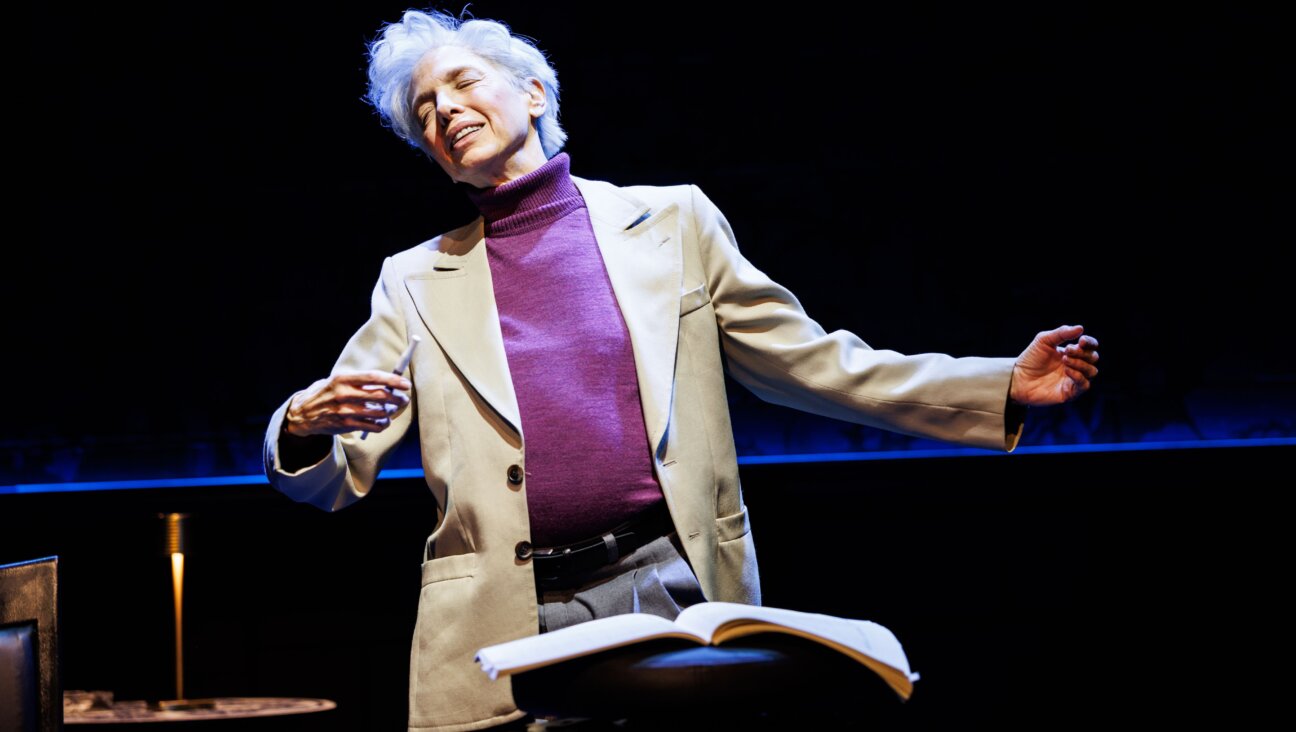Opera brings to life the poignant fate of the Great Yiddish Dictionary
Linguist Yudel Mark aimed to include every single word of the Yiddish language
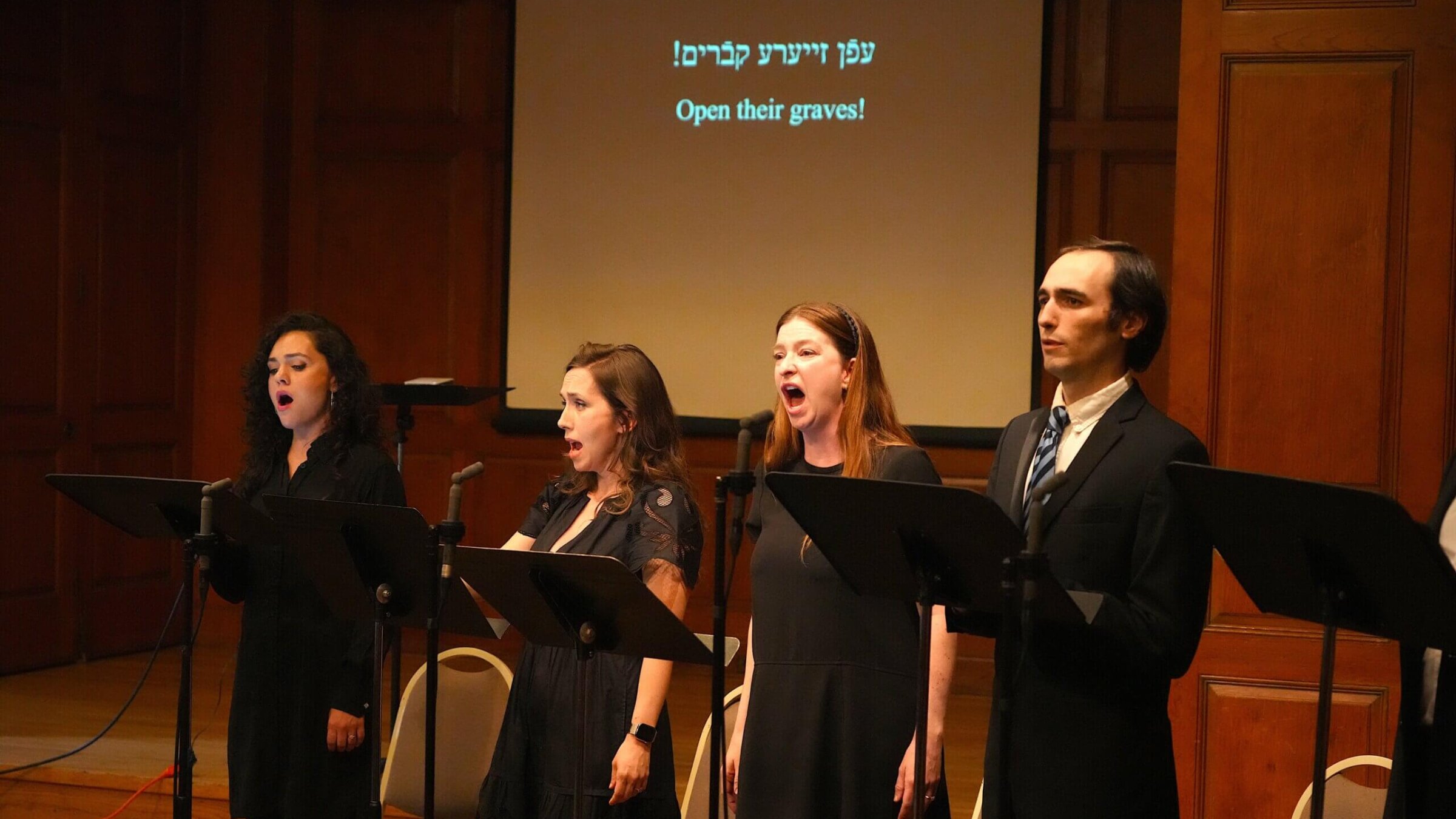
Photo by Steve Pisano
Most of us can relate to having unfinished projects.
Imagine dedicating 25 years of your life to creating an all-encompassing dictionary — yet, never getting past the first letter.
This is the story of Yudel Mark, who, along with his colleague and rival, Max Weinreich, saw this dictionary project as the most meaningful tribute to a language that was nearly wiped out in the Holocaust. Two passionate, stubborn idealists — both with the best of intentions.
According to Isaac Bleaman, a linguist at UC Berkeley, about 83% of the 6 million Jews murdered by the Nazis spoke Yiddish.
Sixty years ago, Weinreich, the long-standing director of YIVO, and linguist Yudel Mark were in a bitter dispute over how to create a comprehensive Yiddish dictionary — not a bilingual one, but one that had the definitions in Yiddish. Both men wanted to rescue the language, but their vision of how to do this diverged considerably. In the end, their difference of opinion had dramatic consequences. So dramatic that their story has now been transformed into an opera.
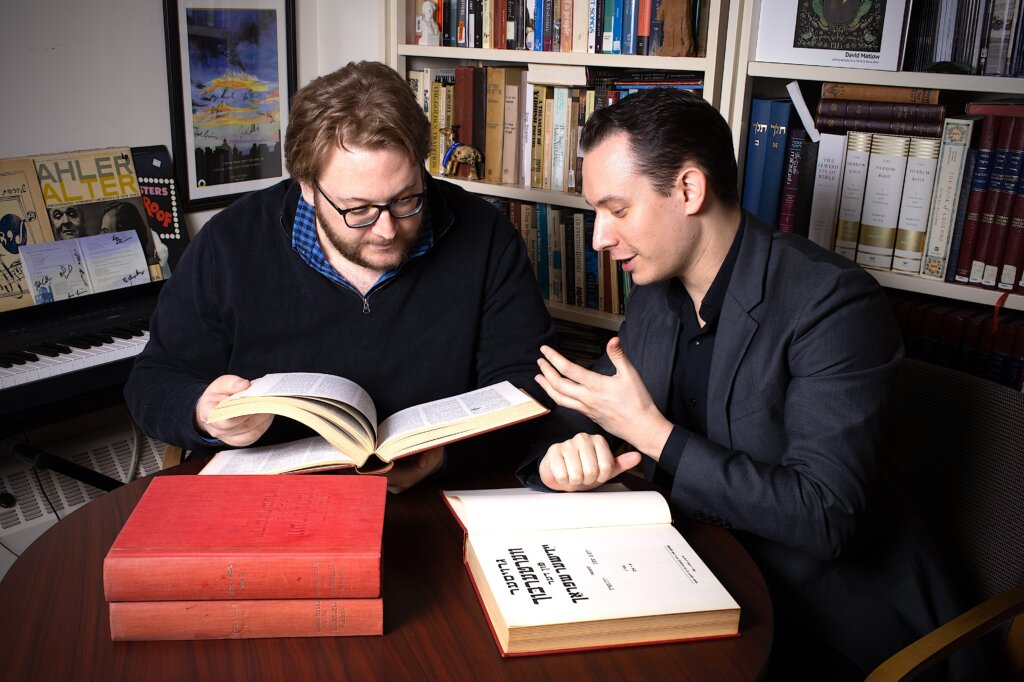
The unique work, The Great Dictionary of the Yiddish Language, premiered in Brooklyn last month as part of the Bang on a Can’s Long Play Festival. The libretto was written by Ben Kaplan. Alex Weiser wrote the music. Both are prominent members of the YIVO staff.
Yudel Mark was played by tenor Jason Weisinger. Baritone Gideon Dabi played Weinreich.
The concert hall was crowded with people of all ages. In the front row sat Mark’s granddaughter, Mirm (Miriam) Kriegel, and his daughter, Reva Kriegel, who had come all the way from Memphis, Tennessee, to see this work dedicated to her father and his life’s work.
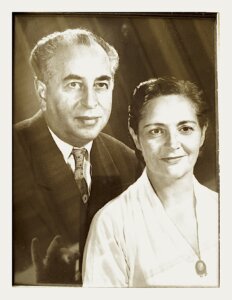
In order to understand the opera, you need to know a little about the dictionary.
The origin story
In the 1950s, after the annihilation of so many Yiddish speakers, a group of dedicated linguists decided to collect every single word of the Yiddish language and compile a dictionary. A committee was formed that signed an agreement with YIVO. The latter would provide them with office space, access to its libraries and materials, and its logo would appear on all publications. The dictionary committee would be responsible for the funding.
From the very beginning, the project was riddled with tsores — difficulties. Mark never had enough staff or money to pull off a project of this magnitude.
The spelling wars
One bone of contention was whether to use the YIVO standardized Yiddish spelling called “the takones” (literally, “the rules”) or another system that Mark preferred. Weinreich, a co-founder of YIVO, insisted on using the takones. Mark refused.
As a result, Weinreich changed his mind. He no longer permitted the dictionary committee to use the YIVO logo. This was a huge blow to Mark. Despite his quarrels with Weinreich, he held YIVO in high regard and considered it the most respected academic center for Yiddish in the world.
Oxford or Webster?
Another issue was whether the dictionary should be unabridged, like the Oxford Dictionary, or whether it could be smaller in scope, like Webster’s. Mark insisted on an Oxford.
In his dissertation’s chapter about the dictionary, Yiddishist and linguist Leyzer (Alec) Burko quotes Mark as saying, “All words are, in their deepest essence, created equal and need to have equal rights in a dictionary.” But this approach was troublesome; the dictionary would need to consist of around 12 volumes, requiring significantly more time and money. The problem was, the dictionary itself was a race against time. Those working on it were mostly older Jews born in Eastern Europe. They worried that they wouldn’t live to see its long-awaited completion.
They were right. To this day, the dictionary has yet to be finished. By the 1980s, after almost 30 years of hard work and dedication, only four volumes had been published. Unbelievably, they cover only the first letter of the Yiddish alphabet: alef. These first four volumes are available online at the Yiddish Book Center’s website. The fifth and sixth volumes have recently been digitized as well.
The divine emanations
Why, you may ask, were three volumes necessary for the letter alef? The alef actually comes in three different forms: The shtumer alef, or silent alef, makes no sound at all and is simply used at the beginning of a word before certain vowels. The pasekh alef is pronounced “ah,” while the komets alef is pronounced “oh.” As a result, words beginning with alef comprise about 20% of all Yiddish words.
It’s no irony then that the three alefs play an important role in the piece. In fact, the Shtumer Alef, Komets Alef and Pasekh Alef are portrayed as divine emanations of the Yiddish language.
According to Weiser, Mark believed that “Yiddish words were holy,” and the linguist had “a quasi-kabbalistic understanding of the Yiddish language.” Mark often spoke about words as “sparks” that have to be preserved and brought out into the world. Kaplan explained why this led him and Weiser to create the three Alefs, divine messengers who deliver a prophetic vision and entrust Mark with a sacred mission: to ensure a future for the 1,000-year-old Jewish language.
The performance
The three mezzo-sopranos (Kristin Gornstein, Caitlin McKechney and Kelly Guerra) began the opera singing a melancholy melody. In the scene, Mark has been transported into a valley of shriveled Yiddish words, crumbling to dust. The divine emanations pointed to the words and demanded that he save the Yiddish language:
Gather the words,
Choose them, breathe:
Hear the voice of God
Speak to them:
I put the breath of life in you.
Suddenly their voices cried out: “Open their graves!” I looked around at the audience, and all seemed taken aback by the unexpected drama of the scene.
Although the divine emanations sang in Yiddish (with English and Yiddish supertitles projected above them), most of the opera was in English. There were no costumes or props, but the singers performed the work with great pathos. One moving scene was Weinreich’s funeral. As the divine emanations recited Kaddish, the Mourner’s Prayer, Mark praised Weinreich as “the center of Yiddish in America,” lamenting that an entire generation had passed away with him. But Mark refused to give up. “The work goes on, the work goes on, the work goes on without you!”
Despite the opera’s serious subject matter, there were moments of levity, like one comical scene alluding to certain outlandish neologisms in the dictionary.
At the end of the opera, the audience reacted with thunderous applause and a standing ovation. The first two to stand up were Mark’s daughter and granddaughter.
Elye (Elliot) Palevsky, a well-known Yiddishist who had come up from Florida, in part to see the performance, thoroughly enjoyed it. “It was just exceptional how they embodied Mark and Weinreich, along with their disputes, which were no mere trifles,” he said.
A message from our Publisher & CEO Rachel Fishman Feddersen

I hope you appreciated this article. Before you go, I’d like to ask you to please support the Forward’s award-winning, nonprofit journalism during this critical time.
At a time when other newsrooms are closing or cutting back, the Forward has removed its paywall and invested additional resources to report on the ground from Israel and around the U.S. on the impact of the war, rising antisemitism and polarized discourse.
Readers like you make it all possible. Support our work by becoming a Forward Member and connect with our journalism and your community.
— Rachel Fishman Feddersen, Publisher and CEO



